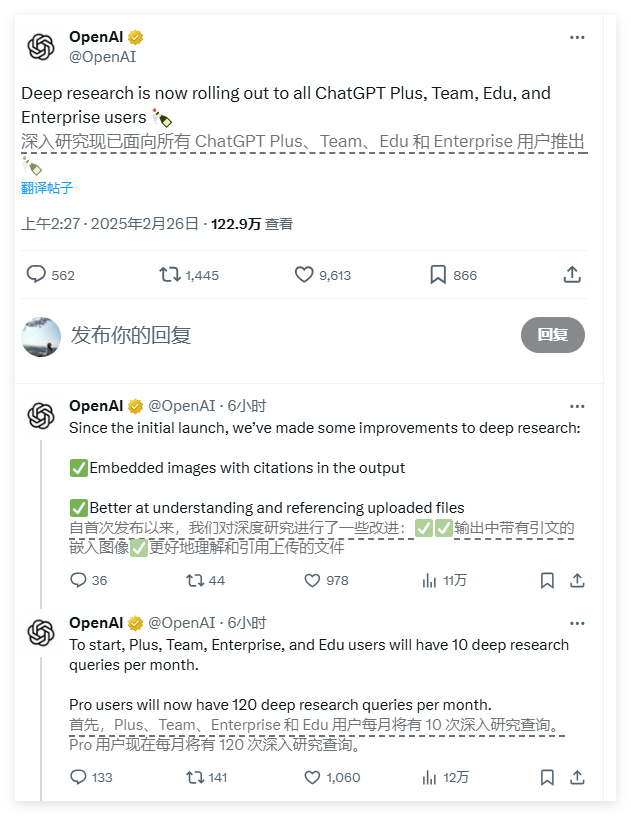OpenAI recently announced the expansion of its Deep Research capabilities to all ChatGPT Plus, Team, Education, and Enterprise users. Many experts consider this the most transformative AI assistant advancement since ChatGPT itself. According to the announcement, these users will receive 10 Deep Research queries per month, while Pro users will enjoy 120 queries.
Deep Research leverages OpenAI's upcoming o3 model, significantly enhancing the AI's capabilities for complex research tasks. Unlike traditional chatbots offering immediate responses, Deep Research independently searches hundreds of online resources, analyzes text, images, and PDFs, generating comprehensive reports comparable to those written by professional analysts.

Meanwhile, the AI competitive landscape is rapidly evolving. China's DeepSeek has emerged as a new competitor, open-sourcing its DeepSeek-R1 model under the MIT license, challenging the subscription-based business model. Unlike OpenAI's paid strategy, DeepSeek's open approach allows for broader application development and dissemination.
This market competition is sparking a clash of technological philosophies. Besides OpenAI and DeepSeek, Anthropic's Claude3.7Sonnet is also making inroads by emphasizing transparent reasoning processes. Perplexity recently integrated DeepSeek-R1 into its research tools, offering services at a more competitive price, further demonstrating the market potential of open-source technology.
OpenAI founder Sam Altman stated in the announcement that Deep Research "could be worth $1000 a month to some users," reflecting the diverse value of the technology. To protect high-end market revenue, OpenAI limits free users to only two queries per month, offering different query quotas for Plus and Pro users to maintain the appeal of its premium products.
Deep Research performed exceptionally well on the "final human exam" benchmark, achieving an accuracy rate of 26.6%, significantly outperforming other competitors. While this technology offers clear efficiency advantages, it also presents challenges in collaboration with human experts. Businesses integrating Deep Research need to reassess their information workflows and explore more effective utilization methods.
Key Highlights:
💻 OpenAI expands Deep Research functionality across user tiers, enhancing the research capabilities of its AI assistant.
🔍 China's DeepSeek challenges OpenAI's subscription model by open-sourcing a new model.
📈 Deep Research creates new business opportunities balancing efficiency and limitations, prompting businesses to reshape information processing workflows.
